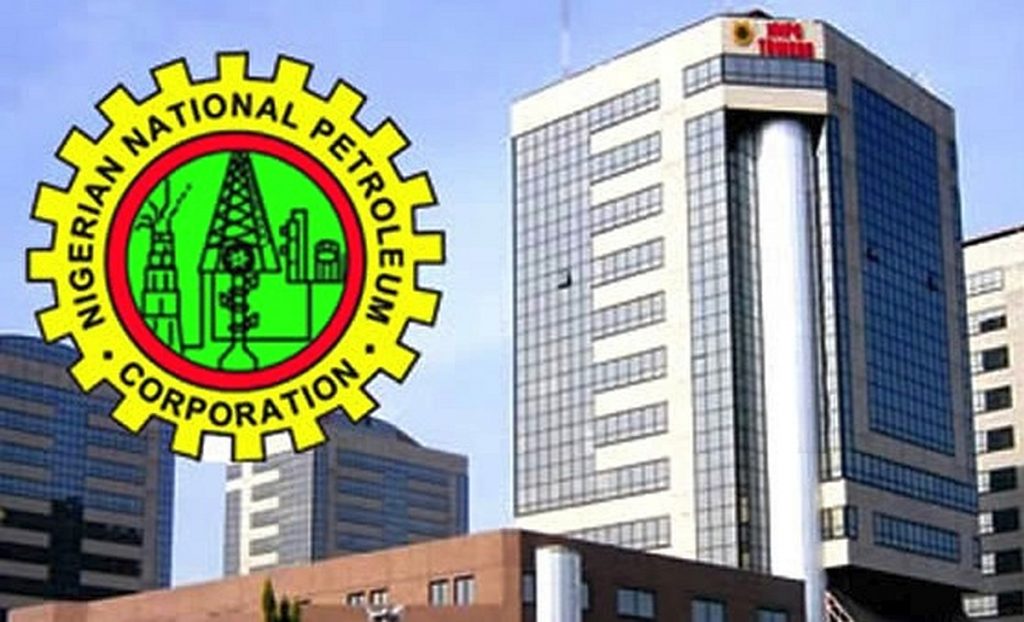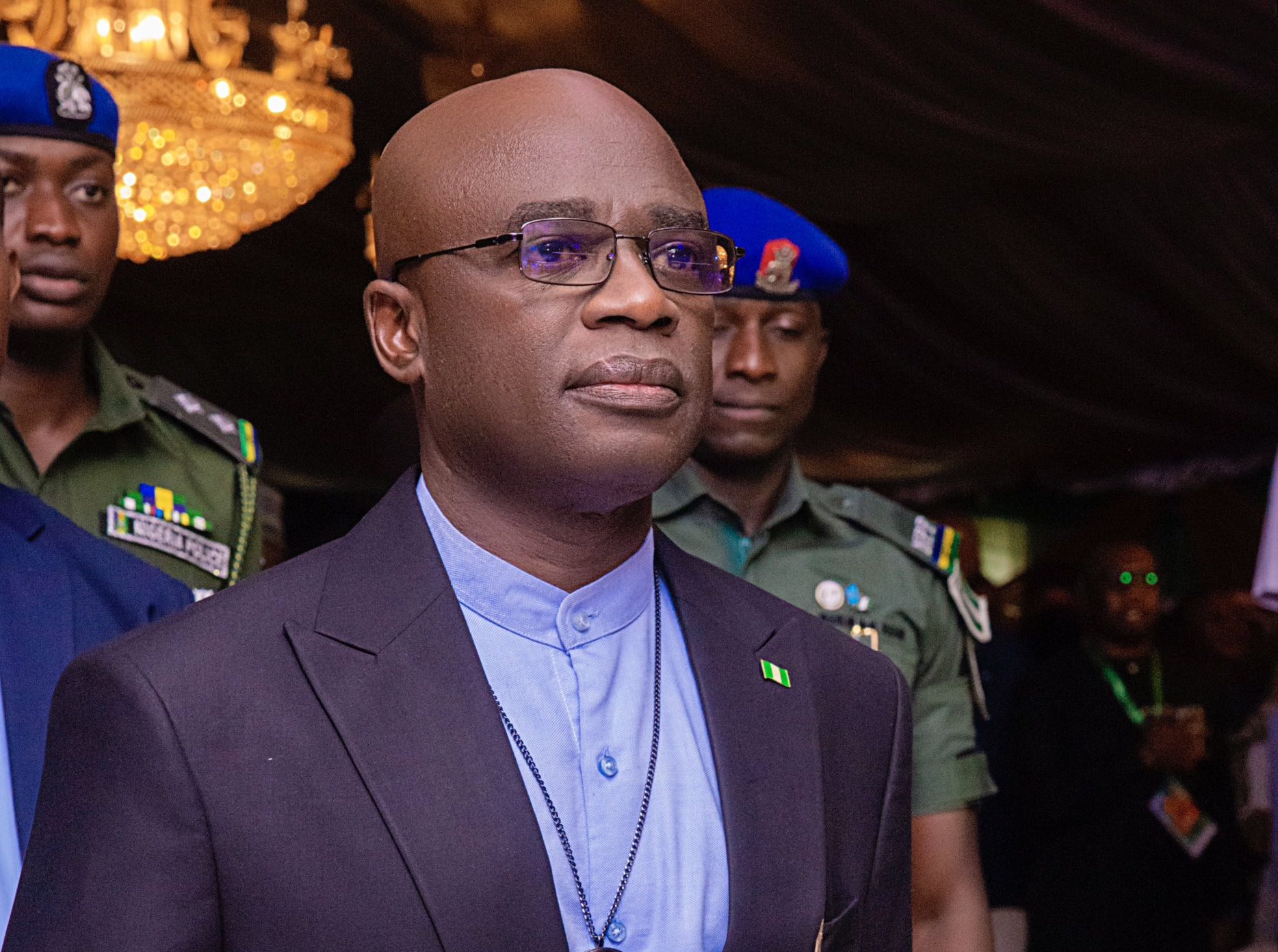Economy
NNPC Apologizes to Nigerians Once More, Reveals Five Substandard Fuel Vessels Rejected

By Derrick Bangura.
Mr. Mele Kyari, Group Managing Director and Chief Executive Officer of Nigerian National Petroleum Company (NNPC) Limited, apologized to Nigerians on Wednesday for the devastation caused by the importation of substandard fuel. Kyari told Nigerians that normalcy will return to gas stations by the next week, claiming that the country’s national oil firm had taken the required procedures to restore supply.
Kyari made the remarks during an investigative hearing on the importation of methanol-blended gasoline before the House of Representatives Committee on Downstream in Abuja.
Petroleum products marketing companies, under the umbrella of the Major Oil Marketers Association of Nigeria (MOMAN), have extended their opening hours in their jetties, depots, and filling stations to a minimum of 18 hours in a bid to end the fuel shortage and clear long lines at filling stations in many parts of the country.
With at least 2.1 billion litres of gasoline on hand, Kyari predicted that the fuel lines will be cleared by next week.
Because they were coming from the same shipping facility that supplied the four substandard cargos, five other vessels transporting their next supply were refused and were not allowed to sail into the country’s waterways, according to the NNPC head. He emphasized that the current situation was because Nigeria imported all gasoline.
“Not a single litre of petrol is produced in the country,” Kyari stated, “which means that 100% of the petrol you see in this country is imported.” Those imports are carried out in accordance with current commercial agreements. It’s known as the direct sale-direct purchase approach, and it’s simply the ideal way for our suppliers to supply us with products on terms and conditions.
“This is something we’ve done while I’ve been here, and it’s part of our supply chain.” Even if all of our refineries, with the exception of Dangote Refinery, start-up today, we will still be short on premium motor spirit (PMS) because all of our refineries can only produce 18 million litres of gasoline. Consumption above 18million litres.
Kyari went on to say that the four cargoes in question met all of the requirements upon arrival, which is why they were allowed to discharge into terminals and be transported to ships.
While acknowledging that they had no means of knowing the PMS contained methanol based on current criteria because it was not part of their requirements at the load port, Kyari guaranteed that they had been able to trace all of the amounts and quarantine them appropriately.
“NNPC is mandated by law to provide energy security,” he says. As a result, it is our job to ensure that this country has enough energy security. This company must abide by the laws of the country, as we have done in the past and this we continue to do.
“For the time being, I can guarantee you that we have done all necessary steps to restore supply to this country.” We’ve placed enough orders to get us through March, with at least 2.1 billion litres of PMS in our possession. I can tell you that the situation you are seeing today will be gone by next week.
“All else being equal, we have a robust supply plan to ensure that we escape this issue, notwithstanding distribution issues that we may not have control over, such as truck movement.”
“Our suppliers deliver things to us based on those contracts, and we reconcile with them on a regular basis.” Giving specifications to your vendors is a part of such supply arrangements. These requirements are governed by law, and the most recent one we use is one that has been in effect since 2006.
“All of our import arrangements are based on the current standards we have.” As a result, those requirements were supplied to all of our partners, and imports were made based on them. They must declare that the vessels fulfill our specifications before leaving the load port; they will send it to the importer and check that it is the specification. You enable the vessel to sail away on the basis of that.”
“Now, when it comes to the country, two things happen,” he continued. We have NNPC surveyors on staff who are now responsible for ensuring that the goods we have satisfies Nigerian specifications.
.
“We also have the regulatory authorities, which must undertake an independent assessment to confirm that this product fits the specifications that are in line with the country’s existing regulations.”
“Despite all of the issues we’ve witnessed, four of the cargoes in question today met all of the criteria on arrival, which is why they were allowed to discharge into terminals and be transported to ship.”
“There is just no way to determine these PMS contain methanol based on the existing standard.” It isn’t part of their load port requirements. We didn’t ask them to declare whether it contained methanol because it wasn’t on our list of requirements.
“Let me make it clear that methanol is not contamination, it is a regular addictive to PMS. In China, up to 15 per cent PMS contain methanol. On its own it is not a contamination, the key issue is handling methanol. If we knew we will not accept this. Anytime methanol comes in contact with water it emulsifies, it turns into a different chemical.”
Kyari lamented that one of the challenges NNPC faced was lack of tracking mechanism to track trucks leaving the depot. He said this had aided smuggling, as some of the fuel was transported to places that might not be in this country.
The GMD disclosed that NNPC had filed litigation against importers of the methanol-blended PMS considering the effect of the withdrawing the products across the country.
He said, “What did we do? We have put all our suppliers who are our contacts or commercial angle on notice that there would be liquidated damages that will come from this. And also it is typical practice that we compile liquidated damages that the direct supplier did not cost, he will transfer that to the next person until it gets to the originating supplier, so it is a back-to-back arrangement.
“That is always done so that once you file, it will get to the last one. I do not know how many people are in the chain because this PMS supply business in one cargo you can have three sellers, you can have two, and you may have only one.”
However, a member of the House committee, Hon. Adediji Olamide, in his submission, said ignorance was not an excuse in law. Olamide said the committee would need a lot of documentation that NNPC.
Earlier in his remarks, Chairman, House Committee on Petroleum Resources Downstream, Hon. Abdullahi Gaya, noted that the investigative hearing was to ensure that the culprits were brought to book as well as make recommendations towards curbing a reoccurrence of the incident.
He stated that the task ahead was challenging, including examining the lessons, proffering solutions and way forward, and rejigging supply and regulating the system to make them more effective and efficient.
Oil Marketers Move to Clear Fuel Queues, Extend Opening Period to 24 hours
Meanwhile, MOMAN said where possible, its members would extend their opening hours up to 24 hours a day in high density and flagship locations where the security situation permitted. The association stated that its members “shall operate these extended hours until the excessive queues subside.”
The association made this known yesterday in a statement signed by its Chairman and Managing Director of Ardova Plc, Mr. Olumide Adeosun. The statement added that it was working with the regulatory authorities and the Nigerian National Petroleum Company (NNPC) Limited towards a resolution of the current fuel crisis.
Adeosun said MOMAN’s subject matter experts were active contributors to the technical and commercial committees’ set up by the regulatory authorities to re-stock fuel supplies, resolve the blending of contaminated product and identify losses suffered by customers, operators and third parties.
He said MOMAN members were also working with designated laboratories to double-check the quality of product (re-blended or new) before they are released into the fuels supply chain.
Most importantly, Adeosun maintained that MOMAN members had committed resources towards enhanced operations and associated activities to reduce the burden of the current fuel scarcity to customers.
The association urged its customers not to engage in panic buying, as it might take a few days for normalcy to return, stressing that panic buying increases the pressure on the supply chain.
,The National Association of Nigerian Students (NANS) has condemned an alleged attempt by some unscrupulous elements to hijack the adulterated fuel saga and resultant fuel scarcity to engage in a protest aimed to instigate crisis in the country and damage the reputation of the NNPC Limited.
NANS also bemoaned the serious fuel supply disruption across the country occasioned by the importation of bad petrol, allegedly, by some approved dealers of the NNPC.
The students’ body, in a statement issued yesterday and jointly signed by its National President, Asefon Sunday, and Secretary-General, Adekitan Lukman, said it was in receipt of credible intelligence that certain individuals had mobilized civil society organizations (CSOs) to embark on protests to paint the NNPC leadership in bad light.
While noting the unnecessary predicament into which the country had been thrown as a result of the fuel supply disruption, NANS chastised individuals who it alleged were seeking political benefit from a strictly operational issue, encouraging them to reconsider.
Economy
Bago inaugurates empowerment programme for 716 youths in Niger

Gov. Umaru Bago of Niger State has inaugurated an empowerment programme for 716 youths sponsored by a state lawmaker, Alhaji Sani Umar (APC-Kontagora 1), in Kontagora Local Government Area of the state.
While inaugurating the programme that involved disbursement of funds on Sunday in Kontagora, he said it would enable youths to acquire skills for self-reliance.
Bago, represented by his deputy, Mr Yakubu Garba, commended the lawmaker for the empowerment programme, which he described as people-centred.
He urged the beneficiaries to make good use of the support given to them, saying that the programme was designed to have a positive impact on their lives.
He said that the state government would continue to come up with policies th positive impact on the lives of the people, especially women and youths.
Bago said that youth empowerment was crucial to fighting unemployment, restiveness and hardship.
He commended the state legislators for their support and collaboration, attributing the government’s successes to their continued assistance and foresight.
The governor reiterated his resolve to foster cohesion between the executive and legislature, ensuring the delivery of democracy dividends to the electorate.
In his remarks, Alhaji Abdulmalik Sarkindaji, Speaker of the House of Assembly, commended the lawmaker for the initiative aimed at empowering the youths to become self-reliant.
He lauded the governor for not interfering with legislative engagements, and for promoting democratic principles in governance and the polity.
Earlier in his address, Umar, the sponsor of the programme, said the empowerment was aimed at reducing unemployment and restiveness among youths in his constituency.
He thanked the governor for his support and encouragement for the programme.
Also speaking, Alhaji Aminu Bobi, Chairman of the All Progressives Congress (APC) in Niger, thanked the governor for his support and administrative prowess, which he said had brought significant changes to the state.
One of the beneficiaries, Aisha Mohammed, thanked the lawmaker for the gesture and promised to make judicious use of the funds to better her life.
The News Agency of Nigeria (NAN) reports that the event was attended by top government officials, traditional rulers, and other stakeholders in the stat
Economy
Benue at 49: Governor Alia’s Vision for Economic Prosperity and Infrastructure Growth

As Benue State celebrates its 49th anniversary, Governor Hyacinth Alia has emphasized his commitment to driving the state to unprecedented levels of economic prosperity and infrastructural development.
In a statement signed by his Chief Press Secretary, Mr. Tersoo Kula, and made available to newsmen on Monday in Makurdi, Alia outlined the significant reforms his administration has set in motion since he assumed office.
“Less than two years into our administration, we have achieved remarkable breakthroughs, unprecedented in the history of the state,” said Alia.
The governor highlighted key achievements, including the rollout of programs aimed at boosting agricultural productivity and agribusiness to ensure food security and improve livelihoods. “We have rehabilitated roads, opened new ones, constructed and fixed public facilities to make Benue more accessible, enhancing economic growth,” he stated.
Alia also underscored the administration’s focus on healthcare, pledging to advance healthcare facilities to ensure quality and accessible services for all citizens. “Our resolve is to take the state where every citizen experiences prosperity, security, and opportunity,” he added.
The governor stressed that achieving these goals requires the collective efforts of all Benue citizens. “This target cannot be achieved alone. It calls for the collaborative determination of all stakeholders, community leaders, traditional rulers, business owners, and our energetic youth. Together, the administration can build a future that mirrors our joint desires,” Alia urged.
As the state marks its 49th anniversary, the governor called on the people to remain steadfast in their commitment to promoting Benue’s growth. “I extend a hand of fellowship to all stakeholders to join hands with us in this noble endeavour,” he concluded.
Economy
NCS Records Historic ₦6.1 Trillion Revenue in 2024

The Nigeria Customs Service (NCS) has achieved a historic milestone, collecting a record ₦6.1 trillion in revenue in 2024, surpassing its ₦5.1 trillion target by ₦1.03 trillion. This represents a 20.2% increase above the target and an impressive 90.4% rise from the ₦3.2 trillion collected in 2023.
Speaking at a press briefing in Abuja on January 14, 2025, the Comptroller-General of Customs, Bashir Adewale Adeniyi, attributed the remarkable performance to strategic reforms, enhanced operational efficiency, and strong alignment with government policy objectives. “This growth is historic as it marks the highest year-on-year increase recorded by the Service in recent times,” he noted.
The record-breaking revenue is segmented into ₦3.66 trillion for the Federation Account, ₦816.9 billion for Non-Federation Account Levies, and ₦1.63 trillion in Value Added Tax (VAT) on imports.
Adeniyi highlighted the Service’s effort to balance revenue collection with trade facilitation, granting concessions worth ₦1.68 trillion to stimulate industrial growth while tightening controls to prevent abuses.
The Service also achieved remarkable progress in trade facilitation, recording a 179.3% increase in total trade value to ₦196.94 trillion in 2024, compared to ₦70.5 trillion in 2023. This growth was driven by a surge in the export trade, which saw a 219.5% increase in value to ₦136.65 trillion.
Significant advancements were made in customs operations, including the introduction of the Advanced Ruling System and the Authorized Economic Operator (AEO) programme. The latter has reduced cargo clearance times to an average of 43 hours for AEO-certified companies. Additionally, the indigenously developed digital clearance platform, “B’Odogwu,” generated ₦31 billion in revenue during its pilot phase.
In 2024, the NCS received international acclaim, advancing 33 places in the Presidential Enabling Business Environment Council (PEBEC) rankings and being recognised among the top five agencies for trade facilitation. Strategic partnerships, such as with the Healthcare Federation of Nigeria, have streamlined the clearance of medical supplies, aligning with the federal government’s health accessibility goals.
The Service’s trade facilitation efforts under the African Continental Free Trade Agreement (AfCFTA) have also bolstered the participation of Nigerian exporters in global markets, with notable representation at the Biashara Afrika forum in Kigali.
Adeniyi attributed these achievements to the support of President Bola Ahmed Tinubu’s administration and the dedication of NCS officers. He reaffirmed the Service’s commitment to leveraging technology, fostering stakeholder collaboration, and enhancing operational efficiency to sustain growth.
-

 Headlines4 years ago
Headlines4 years agoFacebook, Instagram Temporarily Allow Posts on Ukraine War Calling for Violence Against Invading Russians or Putin’s Death
-

 Headlines4 years ago
Headlines4 years agoNigeria, Other West African Countries Facing Worst Food Crisis in 10 Years, Aid Groups Say
-

 Foreign3 years ago
Foreign3 years agoNew York Consulate installs machines for 10-year passport
-

 News1 year ago
News1 year agoZero Trust Architecture in a Remote World: Securing the New Normal
-

 Entertainment3 years ago
Entertainment3 years agoPhyna emerges winner of Big Brother Naija Season 7
-

 Headlines1 year ago
Headlines1 year agoNigeria Customs modernisation project to check extortion of traders
-

 Entertainment2 years ago
Entertainment2 years agoMovie download platform, Netnaija, announces closure
-

 Economy2 years ago
Economy2 years agoWe generated N30.2 bn revenue in three months – Kano NCS Comptroller


















